
Loading...

Loading...
The Parag Illustrator Prize is language agnostic.
The Illustrator Prize is awarded to illustrators who have been illustrating for children since the recent past and their works exhibit a strong literary, artistry and contemporary voice.
1. Nomination
The Award opens by inviting nominations from empanelled members. Individuals, organisations, publishers and other stakeholder of the children’s literature sector who have been committed to creating and advocating good quality children’s literature are invited to nominate.
2. Longlists
Longlists are drawn from the nominated authors and illustrators in consultation with the jury. The respective longlists comprise of around 6 to 8 authors/illustrators. A bibliography is put together for each longlisted author/illustrator and their books purchased for jury reading.
3. Shortlists
The jury reads the longlist works over a few months and independently shortlists 3 or 4 authors/illustrators.
4. Winners
The winners are selected through a discussion among the jury members; the meeting is anchored by Parag. The author/illustrator shortlist is discussed in-depth along with precise reference to their works, contribution and impact. The winners are announced at the Parag Utsav.
1. Illustrators with a minimum of 2 published books qualify for the Parag Illustrator Prize. Illustrations for magazines may be considered in addition to the minimum published books.
2. The illustrated works may include re-telling of traditional literature, translations and adaptations.
3. Primary works that are to be considered by the jury must be produced by a publisher. Self-publications may be considered for additional reading.
4. Illustrators’ works in the last 5 years, from 1st January 2020 till date, are eligible.
5. The illustrator is active, and her/his works are accessible to children.
6. Excellence developed through an eagerness to explore and experiment with ideas, genres and the possibilities of their craft.
7. Stories/visual narratives that are culturally appropriate and avoid/challenge stereotypes.
8. Demonstrate growth and willingness to break known barriers in what defines a children’s author/illustrator.
9. The illustrator may have illustrated for any age between 0 to 18.
10. The illustrator’s works may include one or more genre — fiction, non-fiction, drama and poetry.
11. The Parag Illustrator Prize is not given posthumously.
1. Are the illustrator categories language-specific?
The illustrator categories are not language specific. Illustrators whose books are published in India, in Indian languages including English qualify for the award. However, for regional languages, works must be available in translation for jury reading.
2. Who can nominate?
An empanelled group of various stakeholders of the children’s literature sector in India can nominate. Selected members are invited by Parag to be on the empanelled group. They are librarians, organisations committed to children’s reading, publishers and children’s literature enthusiasts and experts.
3. What is the judging process?
A longlist of authors and illustrators are created from the nominations received. Thereafter, books of the longlisted authors and illustrators are procured and sent to both juries. The respective jury shortlists authors and illustrators, and based on the shortlist the winner is decided by them through a consensus.
4. When are the winners announced?
Winners are announced at the Parag Utsav in December, 2025.
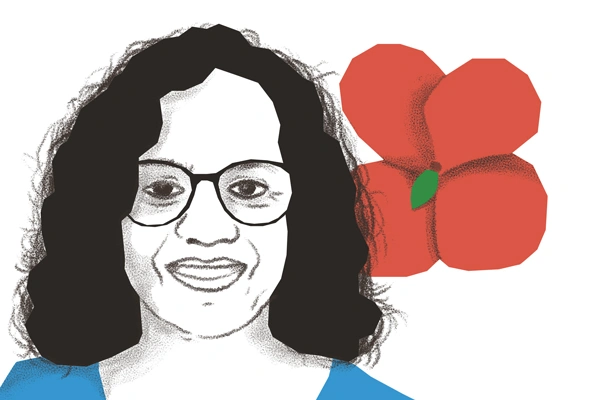
Anushka Ravishankar has written over forty books for children, including picture books inverse, chapter books, retellings of folk tales and non-fiction. Several of them have been published internationally and have won awards. As a picture book writer, she has collaborated with illustrators from all over the world. She worked as an editor at Tara Books and Scholastic India before co-founding a children’s publishing house called Duckbill Books (which is now a Penguin Random House India imprint). Some of her books are Moin and the Monster, Hic!, Captain Coconut and the Case of the Missing Bananas and Ogd.
Anushka Ravishankar has written over forty books for children, including picture books inverse, chapter books, retellings of folk tales and non-fiction. Several of them have been published internationally and have won awards. As a picture book writer, she has collaborated with illustrators from all over the world. She worked as an editor at Tara Books and Scholastic India before co-founding a children’s publishing house called Duckbill Books (which is now a Penguin Random House India imprint). Some of her books are Moin and the Monster, Hic!, Captain Coconut and the Case of the Missing Bananas and Ogd.
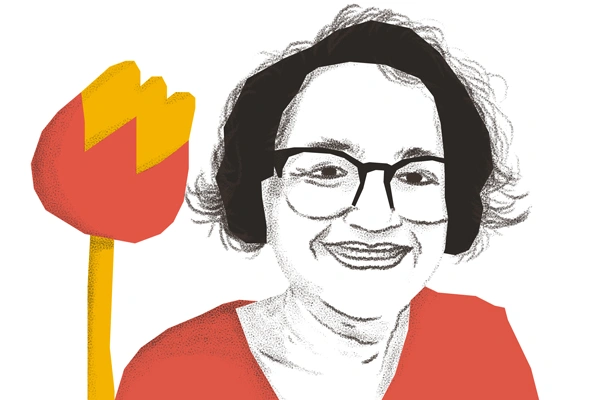
Deepa Balsavar is an author and an illustrator for children. She lives in Mumbai amidst dogs and cats, and teaches at IDC, School of Design, IIT Bombay as Adjunct Associate Professor in the Communications Design Department. She has been a part of the Avehi Abacus Project for over twenty years, involved in research, writing and creating visual learning material for children. In 2021, Deepa received the Big Little Book Award, awarded by the Parag Initiative of Tata Trusts, for her significant contribution to children’s literature in India through illustrations. Some of her picture books are The Lonely Kind and Queen, Seed, The Sea in a Bucket, Our Library. Her book Headstrap/The Sherpa Trail, co-authored with Nandini Purandare on the climbing Sherpa community of Darjeeling, was published in 2024 to international acclaim. The book has already won four writing awards including the Banff Climbing Writing award, Canada, the Boardman Tasker Mountain Literature award, UK, the Kalinga award for non-fiction and the Kekoo Naoroji award for best book on mountain literature.
Deepa Balsavar is an author and an illustrator for children. She lives in Mumbai amidst dogs and cats, and teaches at IDC, School of Design, IIT Bombay as Adjunct Associate Professor in the Communications Design Department. She has been a part of the Avehi Abacus Project for over twenty years, involved in research, writing and creating visual learning material for children. In 2021, Deepa received the Big Little Book Award, awarded by the Parag Initiative of Tata Trusts, for her significant contribution to children’s literature in India through illustrations. Some of her picture books are The Lonely Kind and Queen, Seed, The Sea in a Bucket, Our Library. Her book Headstrap/The Sherpa Trail, co-authored with Nandini Purandare on the climbing Sherpa community of Darjeeling, was published in 2024 to international acclaim. The book has already won four writing awards including the Banff Climbing Writing award, Canada, the Boardman Tasker Mountain Literature award, UK, the Kalinga award for non-fiction and the Kekoo Naoroji award for best book on mountain literature.
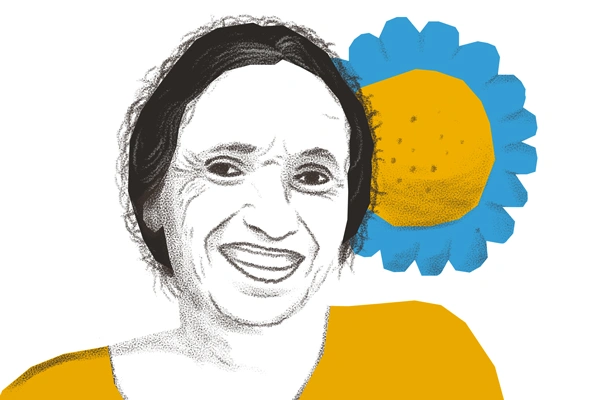
Jane Sahi has taught in an alternative school near Bengaluru for a number of years. She has until recently been engaged in teaching at the Library Educators’ Course at Bookworm in Goa. She is presently involved in The Fig Tree Learners’ Centre that works with local government schools particularly in relation to library activities and sessions with children looking at nature through observation, stories and art work. Jane has written a number of books including “In Our Own Words” which is about how to support children’s independent and creative writing. She has taught courses related to language pedagogy and children’s literature at the Tata Institute of Social Sciences, Mumbai and at Azim Premji University in Bengaluru.
Jane Sahi has taught in an alternative school near Bengaluru for a number of years. She has until recently been engaged in teaching at the Library Educators’ Course at Bookworm in Goa. She is presently involved in The Fig Tree Learners’ Centre that works with local government schools particularly in relation to library activities and sessions with children looking at nature through observation, stories and art work. Jane has written a number of books including “In Our Own Words” which is about how to support children’s independent and creative writing. She has taught courses related to language pedagogy and children’s literature at the Tata Institute of Social Sciences, Mumbai and at Azim Premji University in Bengaluru.
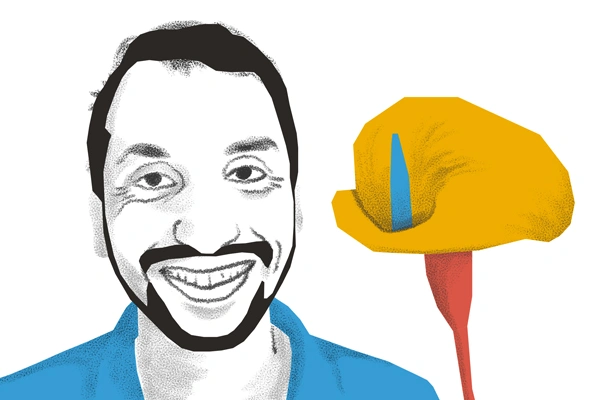
Rajiv Eipe is an animator and an illustrator of picture books and comics. He studied Painting at J J School of Art, Bombay, after which he moved to studying Animation and Film Design at the National Institute of Design, Ahmedabad. He has worked on children’s books with various publishers and has animated short films for television, film and streaming platforms. In 2020, he received the Big Little Book Award, awarded by the Parag Initiative of Tata Trusts, for his significant contribution to children’s literature in India through illustrations. Some of his picture books include Dugga, Hello Sun, Ammachi’s Amazing Machines, and the Maithili and the Minotaur comic book series with C G Salamander. He lives in Bangalore with his partner, two cats and a dog.
Rajiv Eipe is an animator and an illustrator of picture books and comics. He studied Painting at J J School of Art, Bombay, after which he moved to studying Animation and Film Design at the National Institute of Design, Ahmedabad. He has worked on children’s books with various publishers and has animated short films for television, film and streaming platforms. In 2020, he received the Big Little Book Award, awarded by the Parag Initiative of Tata Trusts, for his significant contribution to children’s literature in India through illustrations. Some of his picture books include Dugga, Hello Sun, Ammachi’s Amazing Machines, and the Maithili and the Minotaur comic book series with C G Salamander. He lives in Bangalore with his partner, two cats and a dog.
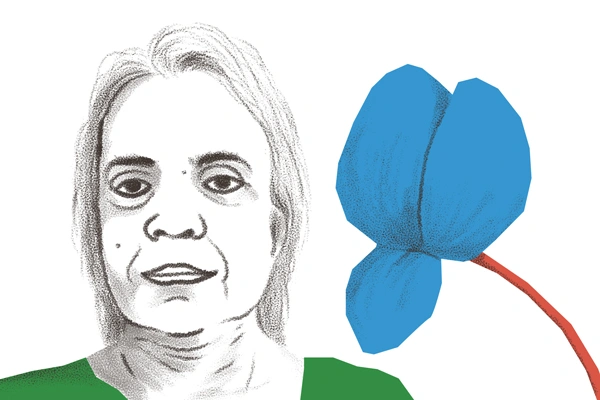
Yashodara enjoys sharing books with children of all ages and backgrounds. For a decade she anchored the ‘Open Library’ at Centre for Learning, Bangalore. She has taught English as a second language to children in formal and informal learning spaces. Along with colleagues at Kalpavriksh, she created nature activities for classrooms for two site-specific environment education projects based in Ladakh and BRT Wildlife Sanctuary. Yashodara ran the Campus Book Store at Indian Institute of Science, also apprenticed in a public library in Bangalore decades ago. She enjoys doing handwork and origami with children.
Yashodara enjoys sharing books with children of all ages and backgrounds. For a decade she anchored the ‘Open Library’ at Centre for Learning, Bangalore. She has taught English as a second language to children in formal and informal learning spaces. Along with colleagues at Kalpavriksh, she created nature activities for classrooms for two site-specific environment education projects based in Ladakh and BRT Wildlife Sanctuary. Yashodara ran the Campus Book Store at Indian Institute of Science, also apprenticed in a public library in Bangalore decades ago. She enjoys doing handwork and origami with children.